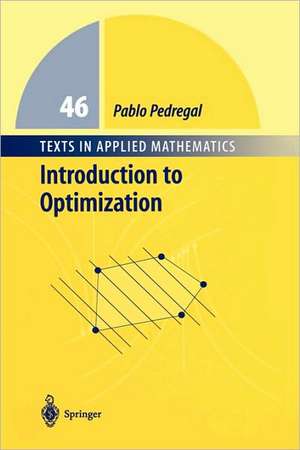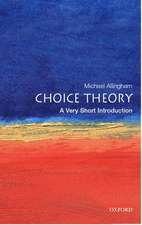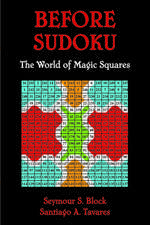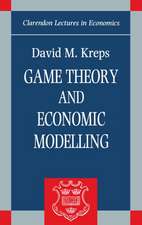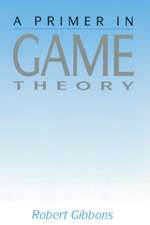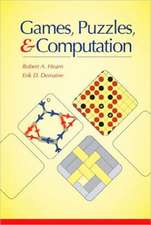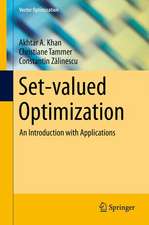Introduction to Optimization: Texts in Applied Mathematics, cartea 46
Autor Pablo Pedregalen Limba Engleză Hardback – 3 noi 2003
| Toate formatele și edițiile | Preț | Express |
|---|---|---|
| Paperback (1) | 386.00 lei 6-8 săpt. | |
| Springer – 20 oct 2011 | 386.00 lei 6-8 săpt. | |
| Hardback (1) | 503.83 lei 6-8 săpt. | |
| Springer – 3 noi 2003 | 503.83 lei 6-8 săpt. |
Din seria Texts in Applied Mathematics
- 17%
 Preț: 368.61 lei
Preț: 368.61 lei - 17%
 Preț: 364.42 lei
Preț: 364.42 lei -
 Preț: 494.87 lei
Preț: 494.87 lei - 19%
 Preț: 510.59 lei
Preț: 510.59 lei - 17%
 Preț: 498.74 lei
Preț: 498.74 lei -
 Preț: 463.79 lei
Preț: 463.79 lei -
 Preț: 471.91 lei
Preț: 471.91 lei - 13%
 Preț: 427.17 lei
Preț: 427.17 lei -
 Preț: 447.93 lei
Preț: 447.93 lei - 8%
 Preț: 528.53 lei
Preț: 528.53 lei - 19%
 Preț: 586.76 lei
Preț: 586.76 lei - 15%
 Preț: 461.29 lei
Preț: 461.29 lei -
 Preț: 404.13 lei
Preț: 404.13 lei - 17%
 Preț: 364.52 lei
Preț: 364.52 lei - 17%
 Preț: 363.12 lei
Preț: 363.12 lei - 15%
 Preț: 594.73 lei
Preț: 594.73 lei -
 Preț: 492.20 lei
Preț: 492.20 lei - 15%
 Preț: 606.82 lei
Preț: 606.82 lei -
 Preț: 406.25 lei
Preț: 406.25 lei - 15%
 Preț: 534.60 lei
Preț: 534.60 lei - 18%
 Preț: 1233.03 lei
Preț: 1233.03 lei -
 Preț: 404.13 lei
Preț: 404.13 lei - 15%
 Preț: 662.27 lei
Preț: 662.27 lei - 15%
 Preț: 511.70 lei
Preț: 511.70 lei -
 Preț: 404.89 lei
Preț: 404.89 lei -
 Preț: 399.29 lei
Preț: 399.29 lei -
 Preț: 464.00 lei
Preț: 464.00 lei - 15%
 Preț: 535.34 lei
Preț: 535.34 lei - 15%
 Preț: 681.60 lei
Preț: 681.60 lei - 15%
 Preț: 732.81 lei
Preț: 732.81 lei -
 Preț: 394.87 lei
Preț: 394.87 lei
Preț: 503.83 lei
Preț vechi: 592.75 lei
-15% Nou
Puncte Express: 756
Preț estimativ în valută:
96.42€ • 100.29$ • 79.60£
96.42€ • 100.29$ • 79.60£
Carte tipărită la comandă
Livrare economică 14-28 aprilie
Preluare comenzi: 021 569.72.76
Specificații
ISBN-13: 9780387403984
ISBN-10: 0387403981
Pagini: 260
Ilustrații: X, 246 p.
Dimensiuni: 155 x 235 x 20 mm
Greutate: 0.54 kg
Ediția:2004
Editura: Springer
Colecția Springer
Seria Texts in Applied Mathematics
Locul publicării:New York, NY, United States
ISBN-10: 0387403981
Pagini: 260
Ilustrații: X, 246 p.
Dimensiuni: 155 x 235 x 20 mm
Greutate: 0.54 kg
Ediția:2004
Editura: Springer
Colecția Springer
Seria Texts in Applied Mathematics
Locul publicării:New York, NY, United States
Public țintă
Lower undergraduateCuprins
Linear Programming.- Nonlinear Programming.- Approximation Techniques.- Variational Problems and Dynamic Programming.- Optimal Control.
Recenzii
From the reviews:
"This is an introductory text on optimization methods written for students of science and engineering. … The variety of the different optimization tasks is illustrated in the introductory chapter by several concrete examples. The basic ideas and techniques for solving the different types of optimization problems are motivated by using many examples and illustrations. Hence, this book is suitable for readers who want to get first information about optimization and optimization techniques … ." (K. Marti, ZAMM – Zeitschrift für Angewandte Mathematik und Mechanik, Vol. 84 (10-11), 2004)
"This book aims at providing undergraduate students and graduate beginners in science and engineering with a general overview of optimization theory. … The book is well written and reads easily … . Each chapter is followed by a series of exercises, and a selective bibliography … . The book will be suitable for a self-study of optimization or to support a general introductory course. It is likely to also serve as a general reference for the audience to whom it is addressed." (Gérard Lebourg, Mathematical Reviews, 2004j)
"The undergraduate textbook introduces students of science and engineering to the field of optimization. It brings together the subfields of mathematical programming, variational calculus, and optimal control, thus giving students an overall view of all aspects of optimization in a single reference. As a primer on optimization, its main goal is to provide a succinct and accessible introduction … . There are numerous examples, illustrations, and exercises throughout the text." (Zentralblatt für Didaktik der Mathematik, Mai, 2004)
"This book introduces students of science and engineering to the fascinating field of optimisation. Several features have been united: conciseness and completeness, brevity and clarity … . It’s a unique book that brings together the subfields … thus giving studentsan overall view of all aspects of optimisation … . There are numerous examples, illustrations and exercises throughout the text, making it an ideal book for self-study. Applied mathematicians, physicists, engineers and scientists will all find this introduction to optimisation extremely useful." (Gregory Guisbiers, Physicalia, Vol. 57 (3), 2005)
"This is an introductory text on optimization methods written for students of science and engineering. … The variety of the different optimization tasks is illustrated in the introductory chapter by several concrete examples. The basic ideas and techniques for solving the different types of optimization problems are motivated by using many examples and illustrations. Hence, this book is suitable for readers who want to get first information about optimization and optimization techniques … ." (K. Marti, ZAMM – Zeitschrift für Angewandte Mathematik und Mechanik, Vol. 84 (10-11), 2004)
"This book aims at providing undergraduate students and graduate beginners in science and engineering with a general overview of optimization theory. … The book is well written and reads easily … . Each chapter is followed by a series of exercises, and a selective bibliography … . The book will be suitable for a self-study of optimization or to support a general introductory course. It is likely to also serve as a general reference for the audience to whom it is addressed." (Gérard Lebourg, Mathematical Reviews, 2004j)
"The undergraduate textbook introduces students of science and engineering to the field of optimization. It brings together the subfields of mathematical programming, variational calculus, and optimal control, thus giving students an overall view of all aspects of optimization in a single reference. As a primer on optimization, its main goal is to provide a succinct and accessible introduction … . There are numerous examples, illustrations, and exercises throughout the text." (Zentralblatt für Didaktik der Mathematik, Mai, 2004)
"This book introduces students of science and engineering to the fascinating field of optimisation. Several features have been united: conciseness and completeness, brevity and clarity … . It’s a unique book that brings together the subfields … thus giving studentsan overall view of all aspects of optimisation … . There are numerous examples, illustrations and exercises throughout the text, making it an ideal book for self-study. Applied mathematicians, physicists, engineers and scientists will all find this introduction to optimisation extremely useful." (Gregory Guisbiers, Physicalia, Vol. 57 (3), 2005)
Textul de pe ultima copertă
This undergraduate textbook introduces students of science and engineering to the fascinating field of optimization. It is a unique book that brings together the subfields of mathematical programming, variational calculus, and optimization in a single reference. As a primer on optimization, its main goal is to provide a succinct and accessible introduction to linear programming, nonlinear programming, numerical optimization algorithms, variational problems, dynamic programming, and optimal control. Prerequisites have been kept to a minimum, although a basic knowledge of calculus, linear algebra, and differential equations is assumed.
There are numerous examples, illustrations, and exercises throughout the text, making it an ideal book for self-study. Applied mathematicians, physicists, engineers, and scientists will find this introduction to optimization extremely useful.
